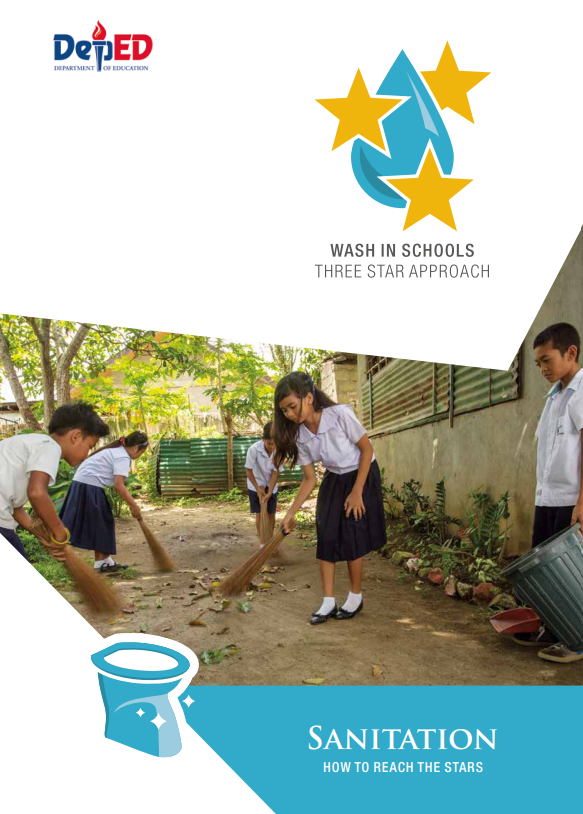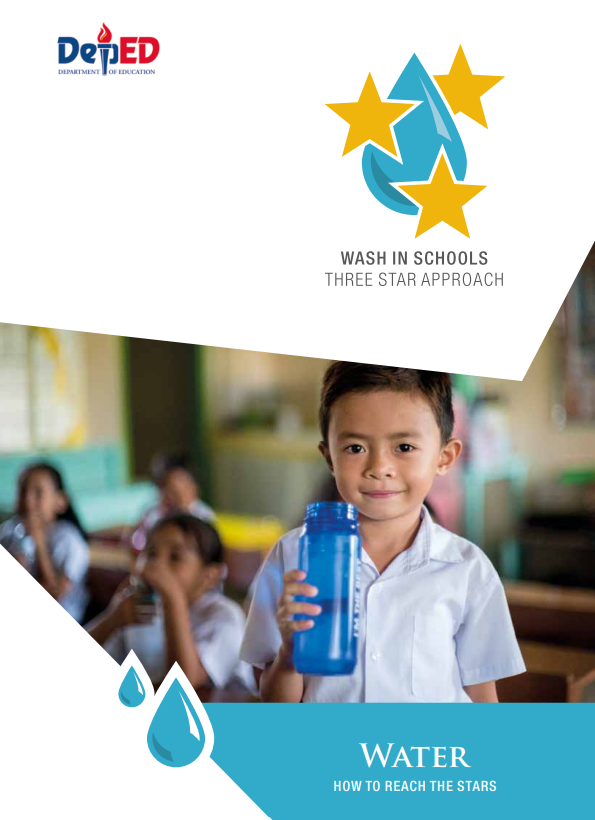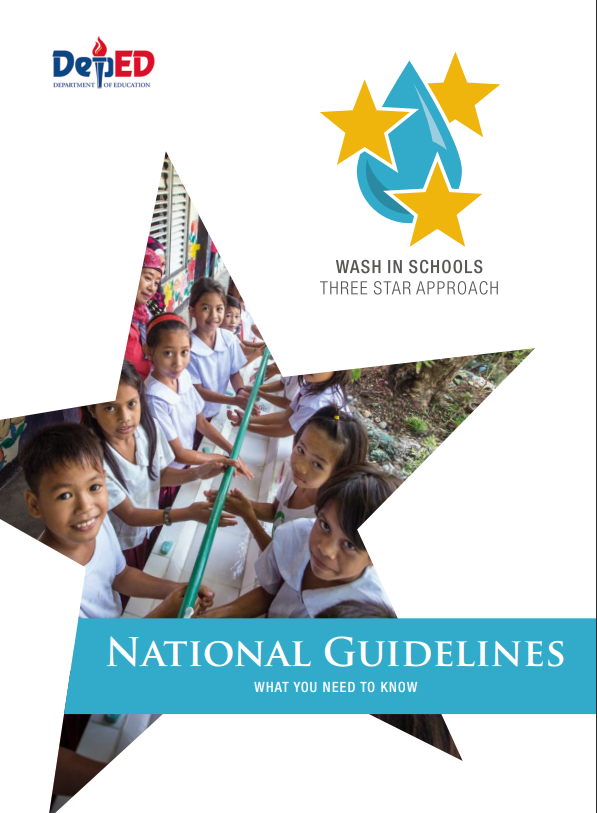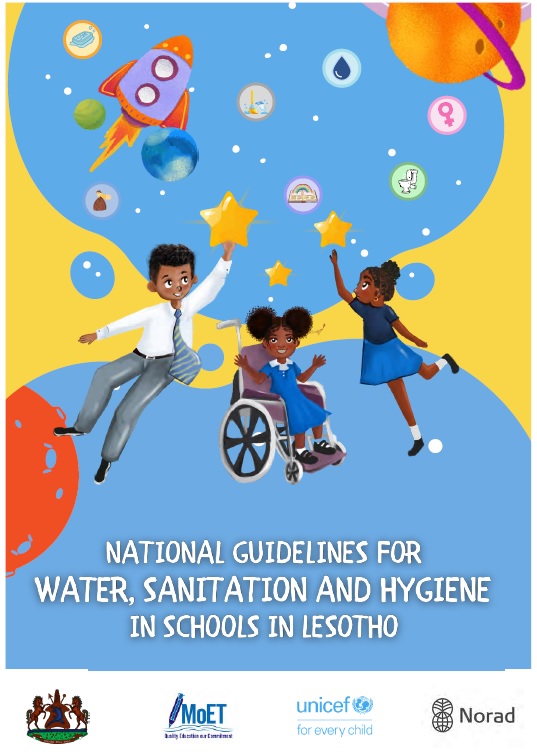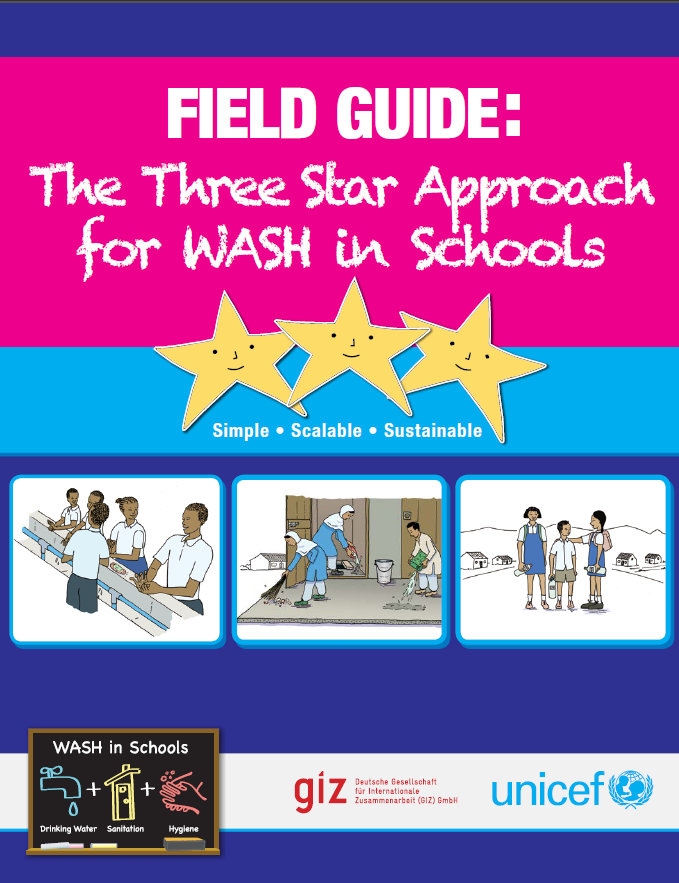
Field Guide: The Three Star Approach for WASH in Schools
The Three Star Approach for WASH in Schools is designed to improve the effectiveness of hygiene behaviour change programmes for children and complements UNICEF’s broader child-friendly schools initiative and GIZ’s ‘Fit for School’ approach, which promote safe, healthy and protective learning environments.
Size: 4.619 MB
The Three Star Approach for WASH in Schools is designed to improve the effectiveness of hygiene behaviour change programmes for children and complements UNICEF’s broader child-friendly schools initiative and GIZ’s ‘Fit for School’ approach, which promote safe, healthy and protective learning environments.
The Three Star Approach for WASH in Schools is designed to improve the effectiveness of hygiene behaviour change programmes. The approach ensures that healthy habits are taught, practised and integrated into daily school routines. The Three Star Approach helps schools meet the essential criteria for a healthy and protective learning environment for
children as part of the broader child-friendly schools initiative. It aims to address the bottlenecks that block the effectiveness and expansion of current WASH in Schools programmes.
The Three Star Approach involves changing the way WASH in Schools programming is perceived by schools, communities, and decision makers in government and support agencies. By prioritizing the most essential actions for achieving goals, the Three Star Approach helps schools focus on meeting children’s needs through key interventions. At the same time, it provides a clear pathway for all schools throughout a country to meet national standards, and for all children to have hygiene-promoting and healthy schools. It encourages local action and support from communities and does not depend on expensive hardware inputs from the education system or external support agencies. ‘Keep it simple, scalable and sustainable’ is the guiding concept for interventions at all stages, so that the approach can be sustainably expanded countrywide at low cost.
